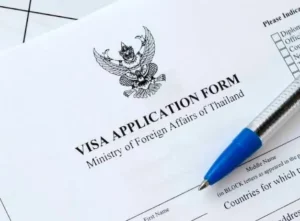A Power of Attorney allows you to appoint a representative to act on your behalf in certain situations. It is important that your PoA document is carefully drafted to ensure it meets the formal and substantial requisites of Thai law.
A well-drafted POA can empower individuals to delegate authority and facilitate property transactions, business operations, or healthcare decisions. We recommend seeking legal advice when drafting a POA.
What is a Power of Attorney?
A Power of Attorney is a legal document that authorizes one person to act on behalf of another. It must be in writing and clearly specify the powers granted. It should be signed by the agent and the principal. In some cases, it may also require notarization or certification by a competent authority. It is important to choose an agent that you trust and who is capable of managing your affairs.
There are several types of Power of Attorneys in Thailand, including the General Power of Attorney (GPA) and Special Power of Attorney (SPA). The GPA grants broad legal authority and is generally used to manage real estate transactions or business affairs. The SPA is more limited in scope and can only be used to perform specific acts, such as signing documents for a property transfer at the Land Department.
Understanding the types of Power of Attorney in Thailand and how to properly execute a POA is essential for individuals seeking to navigate their legal and financial matters efficiently. By working with a Thai law firm, such as J&E Concierge Pattaya, individuals can ensure their Power of Attorney complies with local laws and is effective for their particular transaction or situation. This can help them avoid potential legal pitfalls and ensure their assets are protected.
What are the legal requirements for a Power of Attorney?
Powers of Attorney are powerful legal instruments that allow individuals to delegate authority to others for many purposes, including property transactions, business operations, and legal representation. However, there are important legal requirements to adhere to when creating a POA to ensure that it complies with Thai law and accurately reflects the principal’s intentions.
One of the most important requirements is that both the Principal and the Agent must be legally capacitated to execute the powers outlined in the document. Additionally, the document must comply with other formal and substantial requisites to be considered valid and enforceable, such as being notarized after being signed by both parties.
The scope of the powers granted must be clearly stated in the POA, as ambiguities can lead to confusion and misuse of power. It is also advisable to consult with a lawyer to ensure that the POA complies with Thai law and is tailored to your specific needs.
The duration and revocation process of the Power of Attorney should also be specified in the document, as well as any specific instructions or limitations. For example, a non-durable special POA is typically limited to completing specific transactions such as buying or selling real estate and is only valid for a single transaction. However, a durable general Power of Attorney is valid for a broad range of transactions and can last indefinitely.
How can I get a Power of Attorney in Thailand?
A Power of Attorney is an important legal instrument that allows an individual to appoint another person to act on their behalf. It is essential to understand the legal framework, types, and process for executing a POA in Thailand.
A POA can be either general or specific, and it can be enduring or temporary. It is also important to make sure that the document clearly outlines the powers granted to the agent, and that it contains all of the necessary information. In addition, it is advisable to have the document notarized in order to ensure its authenticity and validity.
Finally, the agent must be legally capable of exercising the powers outlined in the document. If they are not, the document may be deemed invalid. Furthermore, if the grantor dies or is incapacitated, the Power of Attorney will terminate.
J&E Concierge Pattaya can assist in drafting and notarizing a Power of Attorney to meet your needs. We have extensive experience working with local authorities and can help you navigate the complexities of Thai law. Contact us today to learn more about our services. We look forward to hearing from you! . ( )
What are the benefits of a Power of Attorney?
A Power of Attorney allows you to empower an individual to manage your affairs, finances, properties, assets, or carry out a deal on your behalf. It also enables you to draft a living will for healthcare and end-of-life decisions in the event of incapacity. The document can be durable or non-durable, and it must be drafted in accordance with Thai law. It must be signed by both the Principal and Agent and witnessed by two witnesses or a Notary Public Thailand. In some cases, it may also be necessary to have the document legalized or apostilled for international recognition.
A POA can save you time and money in many situations, such as conducting business transactions or selling real estate. It can also be used to delegate financial management duties, sign contracts, and make decisions on your behalf. Moreover, it can also authorize an agent to represent you in legal matters, such as attending hearings and negotiating settlements.
However, a Power of Attorney is not without its risks and should only be granted while you are in good mental and physical condition. It is also important to consult an expert in order to ensure that the document is drafted properly and conforms to Thai law. Our team of foreign and Thai lawyers can help you draft a Power of Attorney that meets your needs.
Related posts:










